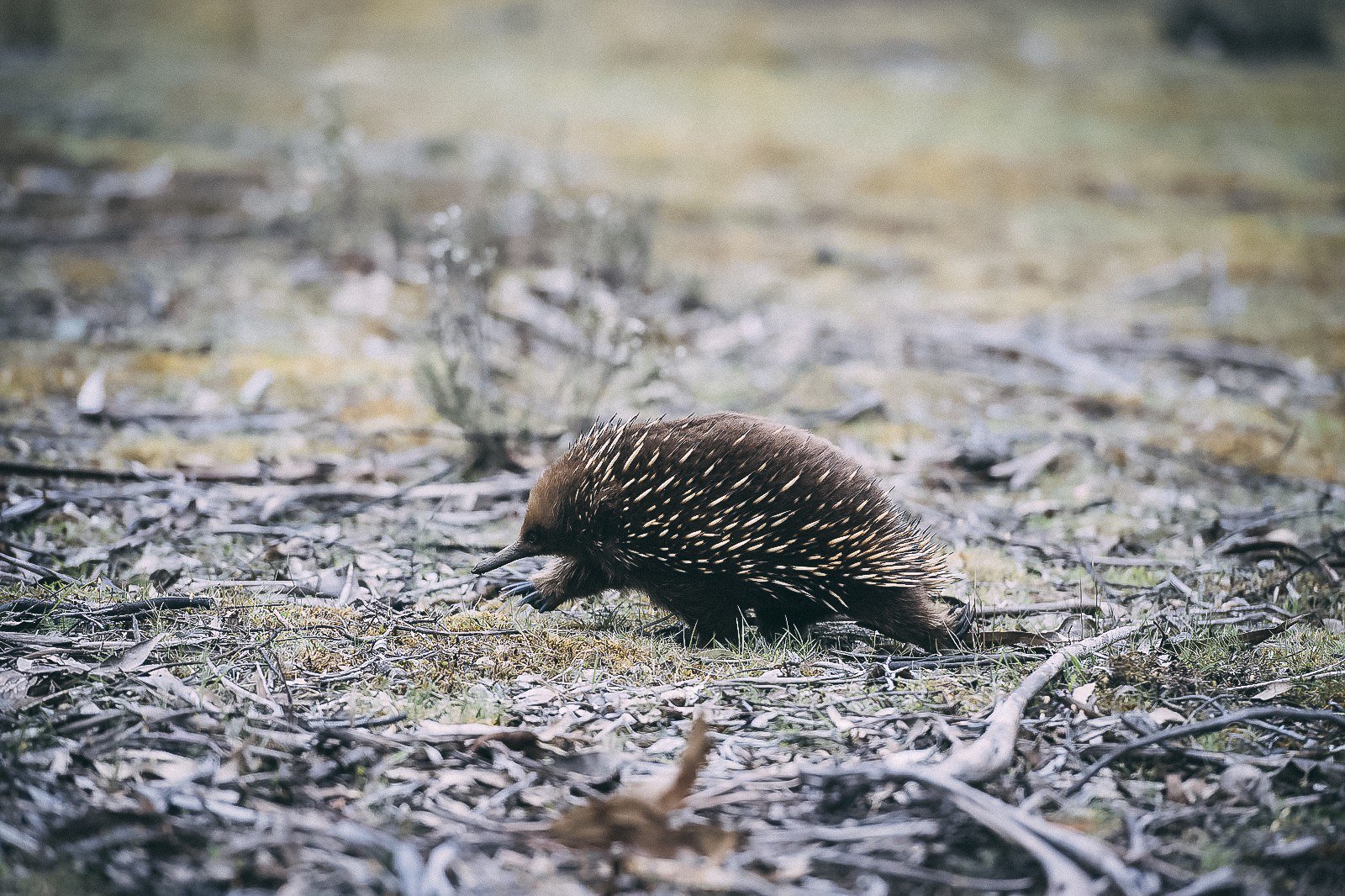What a view! Photo © Kate Joie
Sitting around a campfire, falling asleep under the stars or collecting water from the closest stream — these are just some of the things about camping that make us feel whole and connected to something greater than ourselves. We are all part of the natural world, and that sense of belonging we feel when we connect with it comes with great responsibility. Responsibility to care for the environment and leave it better than we found it. With this in mind, here are five tips to camp more sustainably and respect the natural environment.
Choosing Your Camp Spot
One of the most important aspects of camping is choosing the right spot. The best experiences are the most immersive ones, you want to be surrounded by nature to soak up all the benefits. Choose a site that is close to a resource like firewood (provided you are not in a national park), water such as a river, stream or spring and shelter such as a tree or cave for shade.
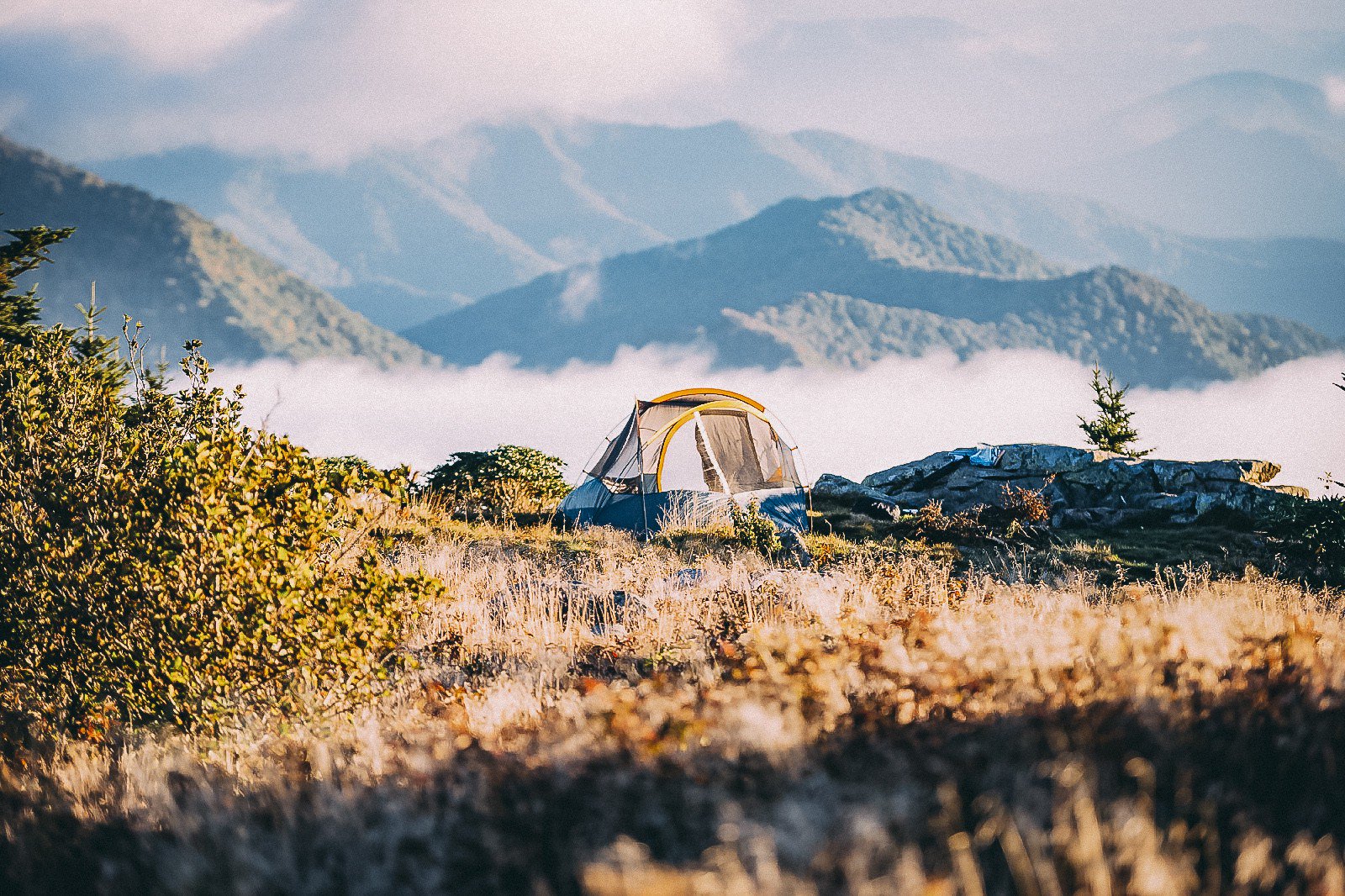
© Photo: Christopher Jolly
Bring Only The Essentials
Camping is about getting back to basics, simplifying life and ‘living off the land’ so to speak. The essentials for camping are usually food, water, shelter, and cooking equipment. When packing for your next camping trip, think about what the environment can provide versus what you need to bring.
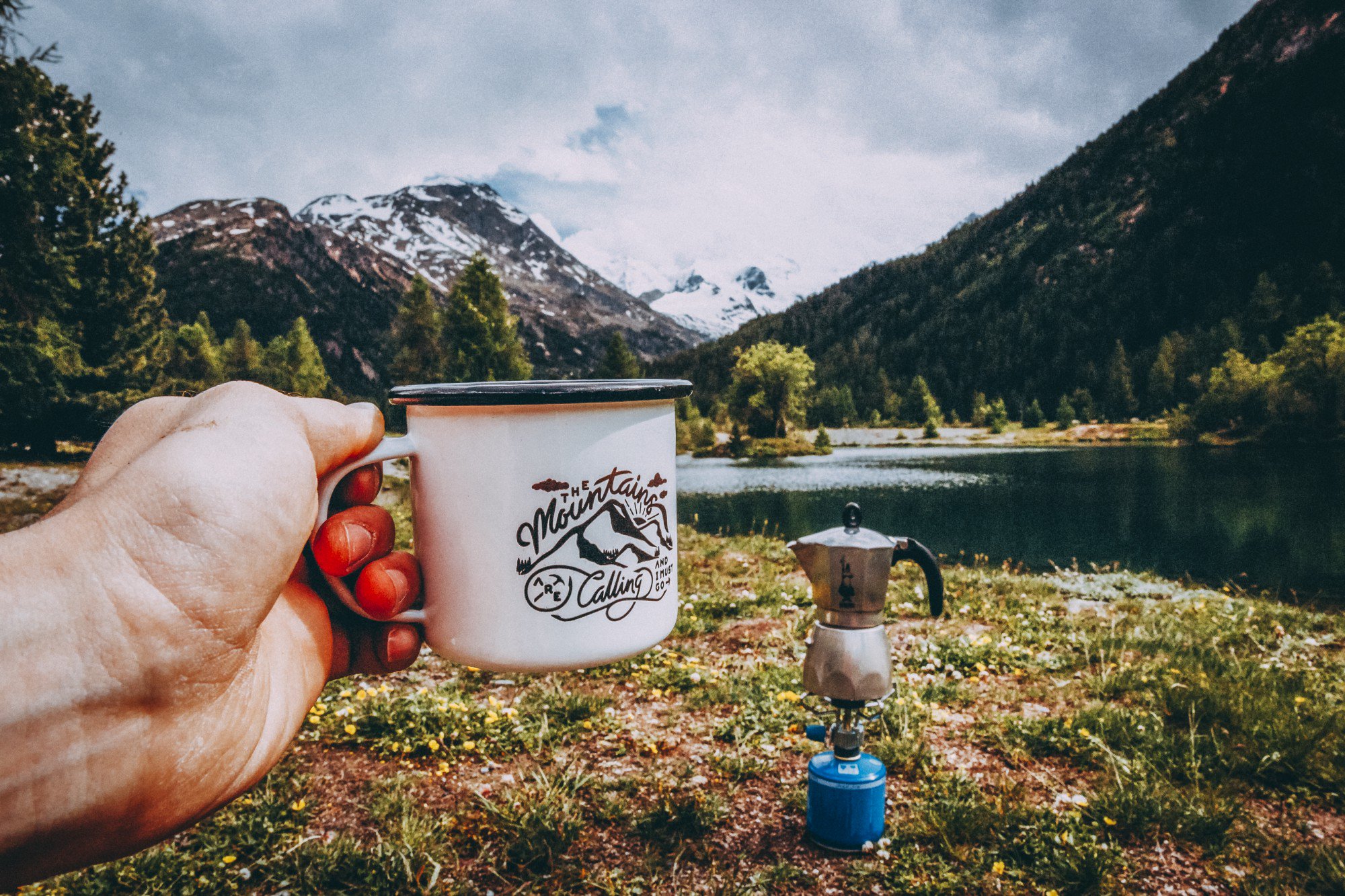
Coffee time. © Photo: Kevin Schmid
Buy Fresh, Support Local
Camping sustainably isn’t just about treading lightly on the environment, it is also about supporting the local community. Where possible, pop into the closest general store or bakery, buy produce from the side of the road or at a local farmer’s market. Not only is food better with fewer carbon miles attached to it but it’s an excellent opportunity to pick up any tips from the locals.
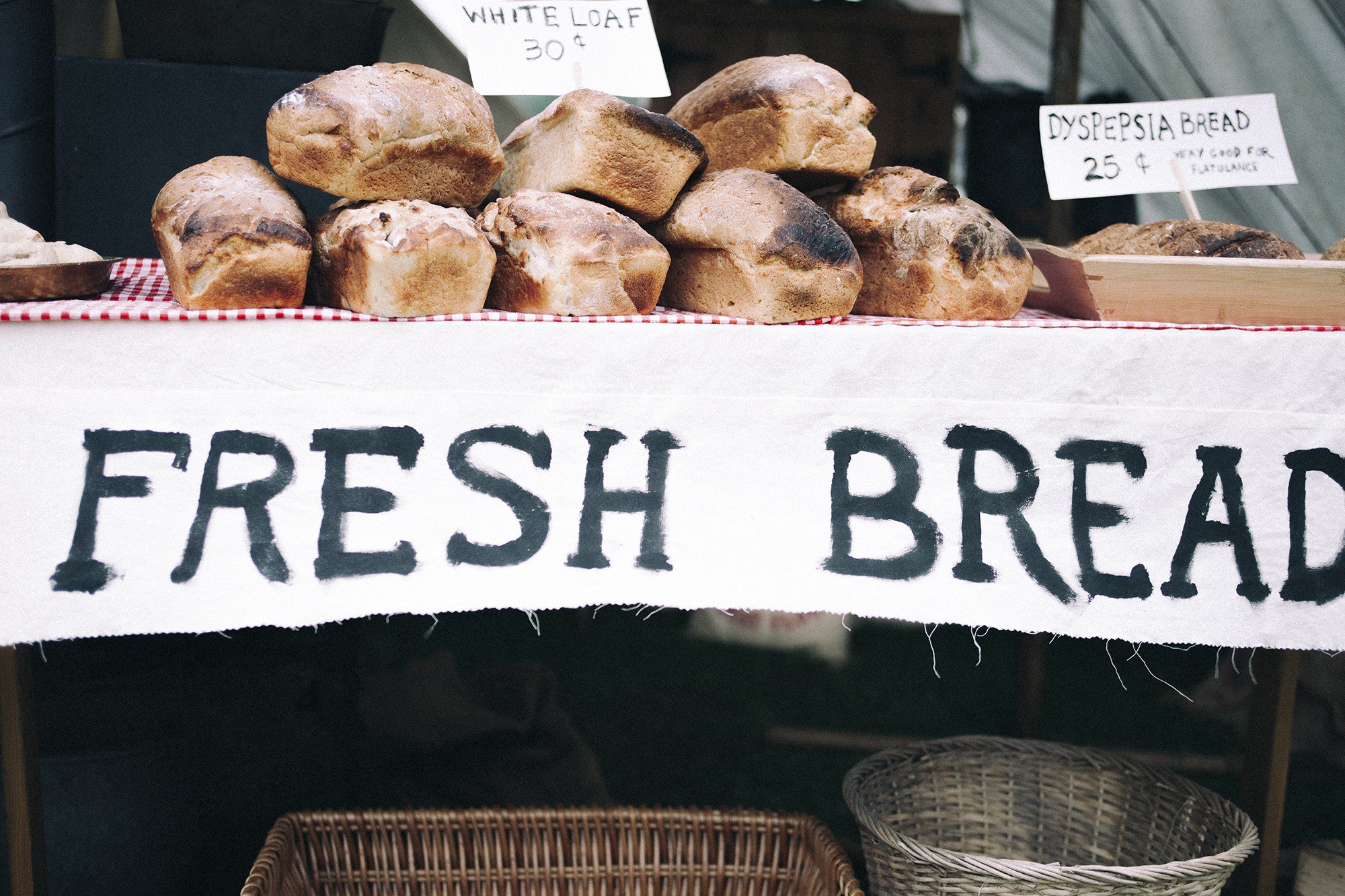
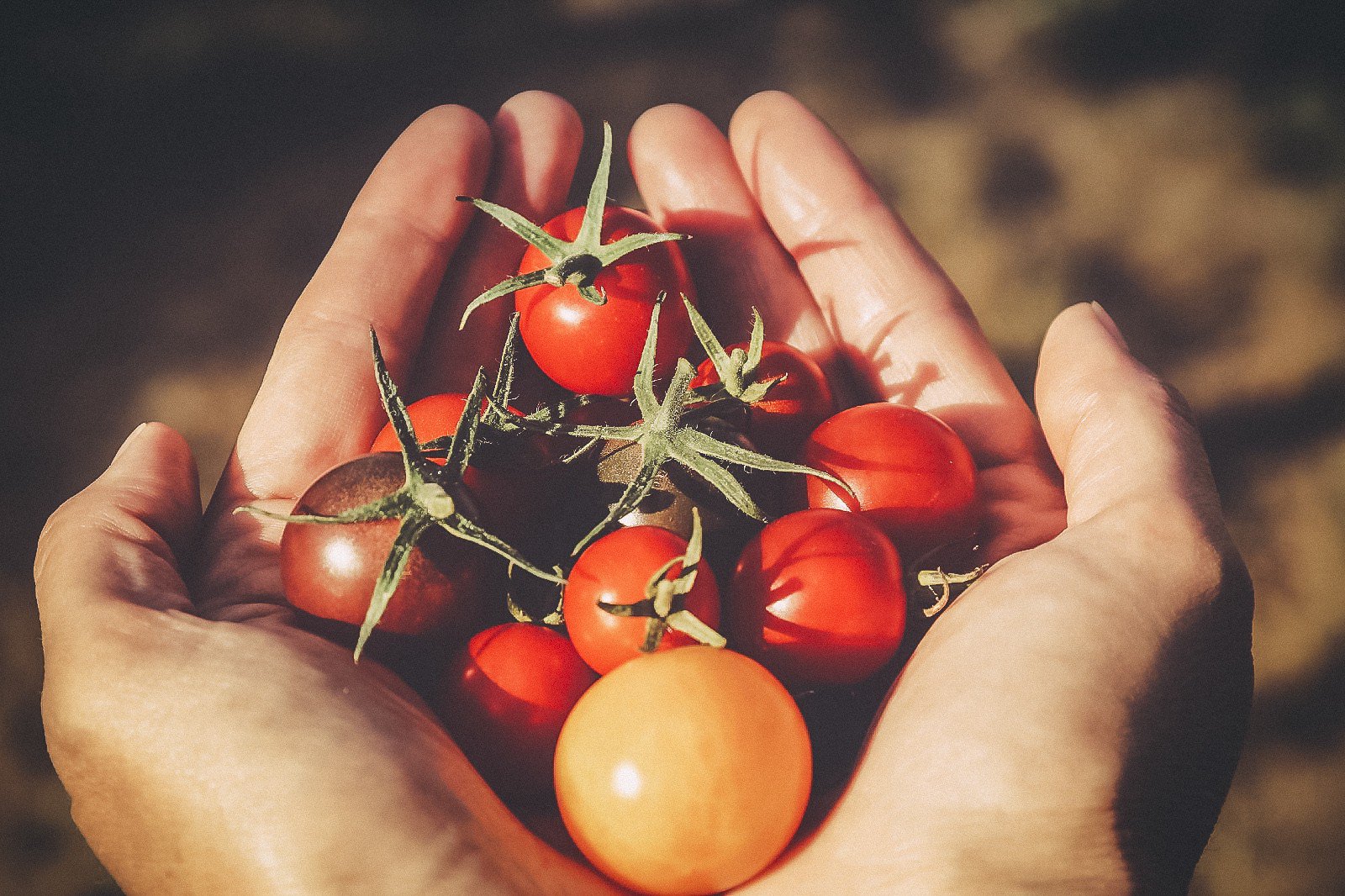
Farmers market produce (LHS) © Photo: Clem Onojeghuo; (RHS) Photo: © Jametlene Reskp
Let Nature Provide
Sometimes you can collect food and firewood from where you are but only if its permitted (not in National Parks) and safe to do so. You could fish for your dinner, collect berries or wild lettuces, even forage for mushrooms. Learning about your natural environment, edible plant species and the best wood to fuel your fire, will make you feel more connected to the environment you’re in. Always make sure you have an up to date fishing license and someone who is experienced in local flora to assist you in picking wild foods.
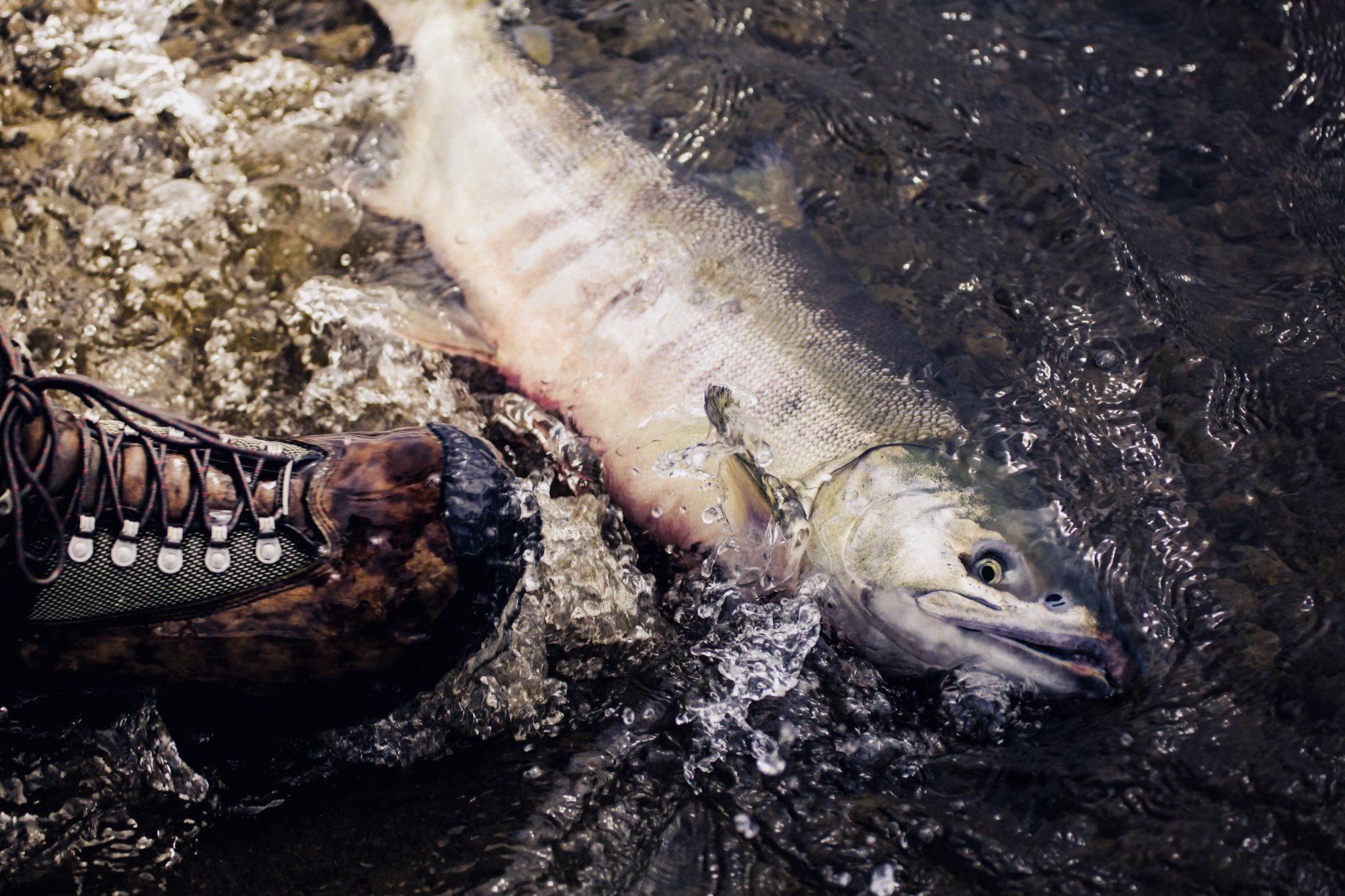
Fresh fish for dinner! Photo: © Clay Knight
Leave No Trace
The most important part of camping is to leave nature in a better state than you found her. This means treading lightly, sticking to established paths or roads, using pre-existing firepits, removing trash and, if you need to wash anything do so without soap which is a pollutant. Always make sure you take everything home that you brought with you.
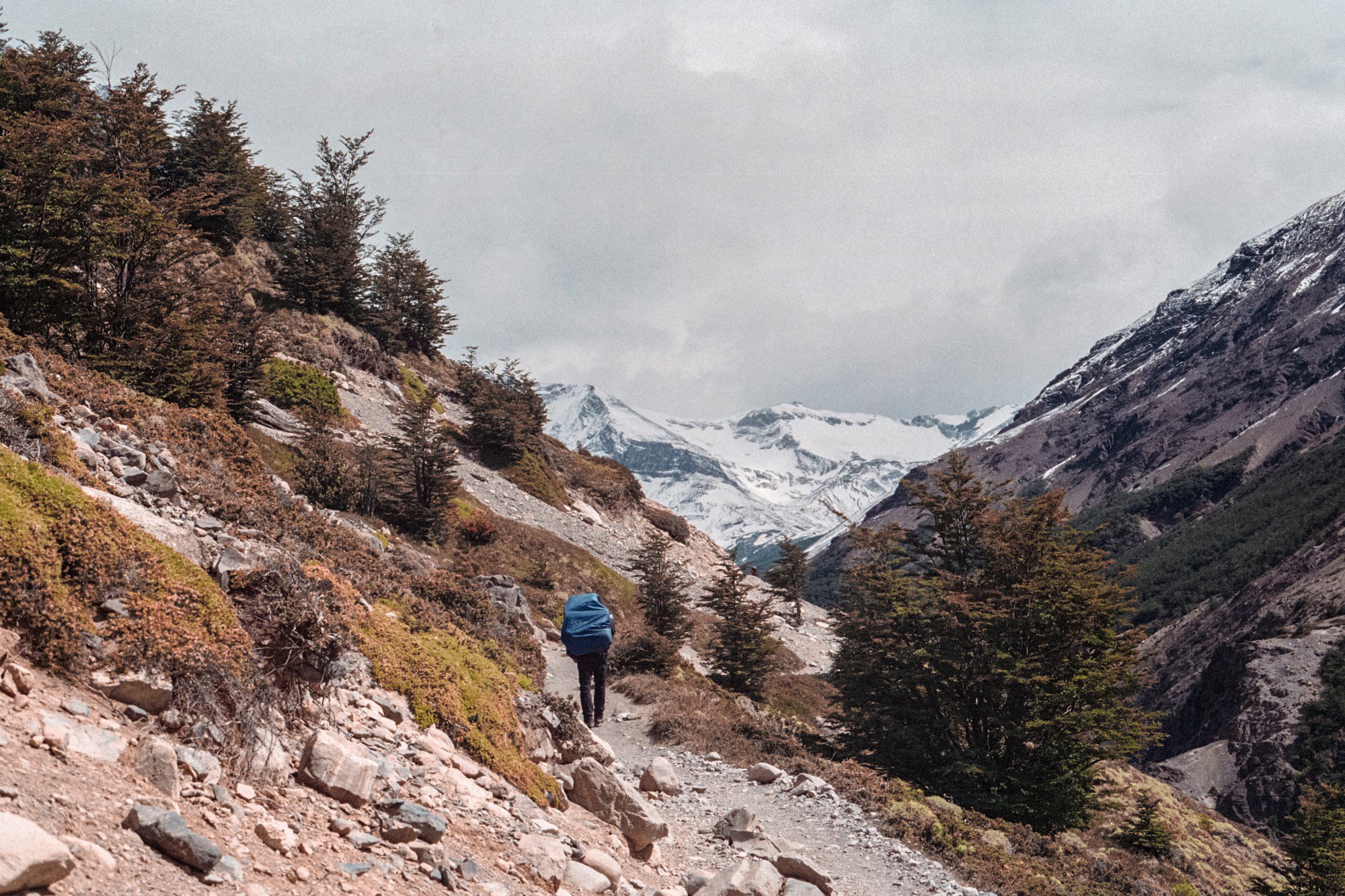
Sticking to the path. Photo: © Jens Johnsson
Admire Wildlife From a Distance
Never, ever feed wildlife and always keep your food well locked up. Feeding wildlife can cause a reliance on humans for food and wildlife to abandon their natural feeding habits to stay close to human activity. This can only lead to a disaster and more often than not results in wildlife pests needing to be removed or killed. Remeber the less you interfere, the more you care.
